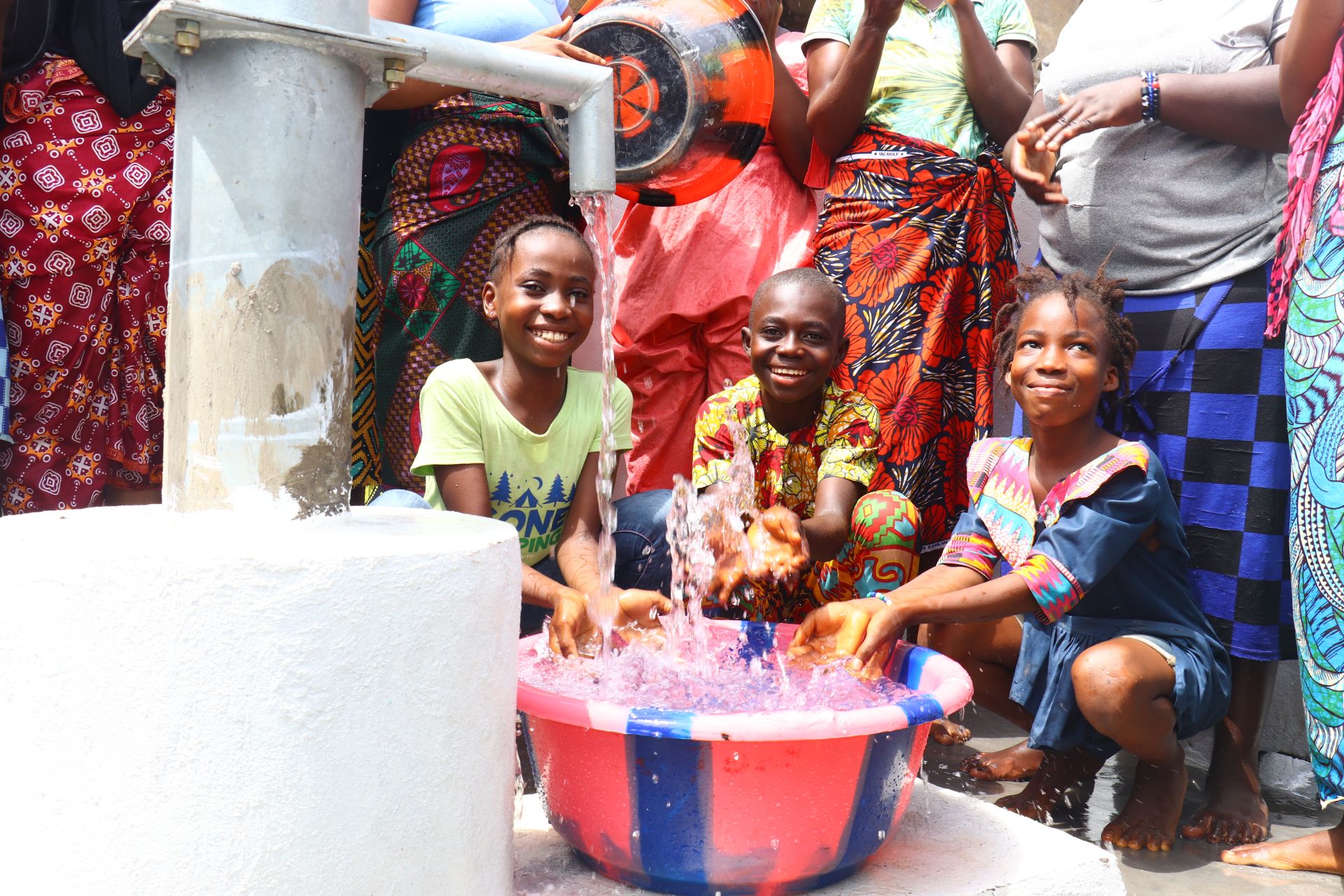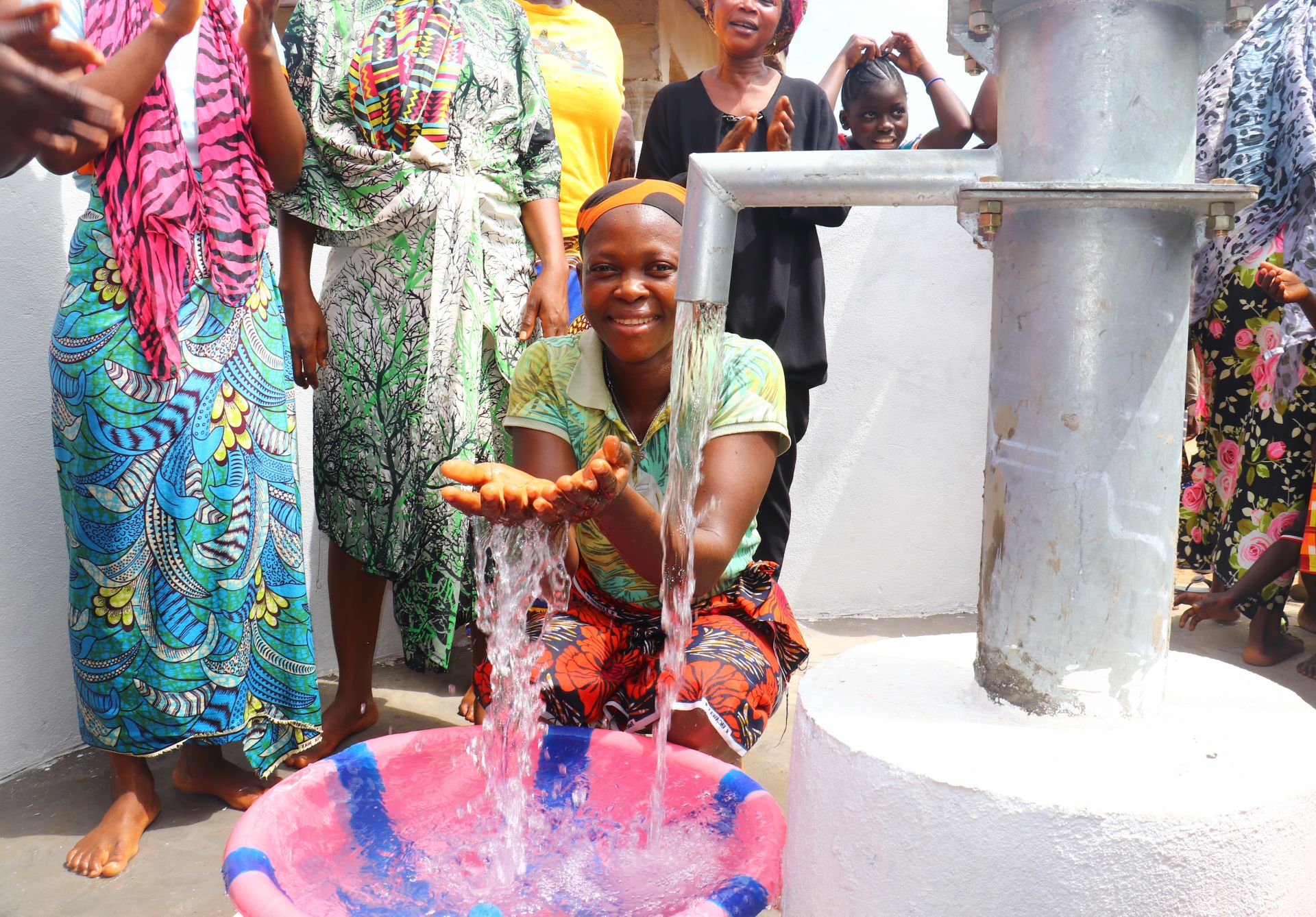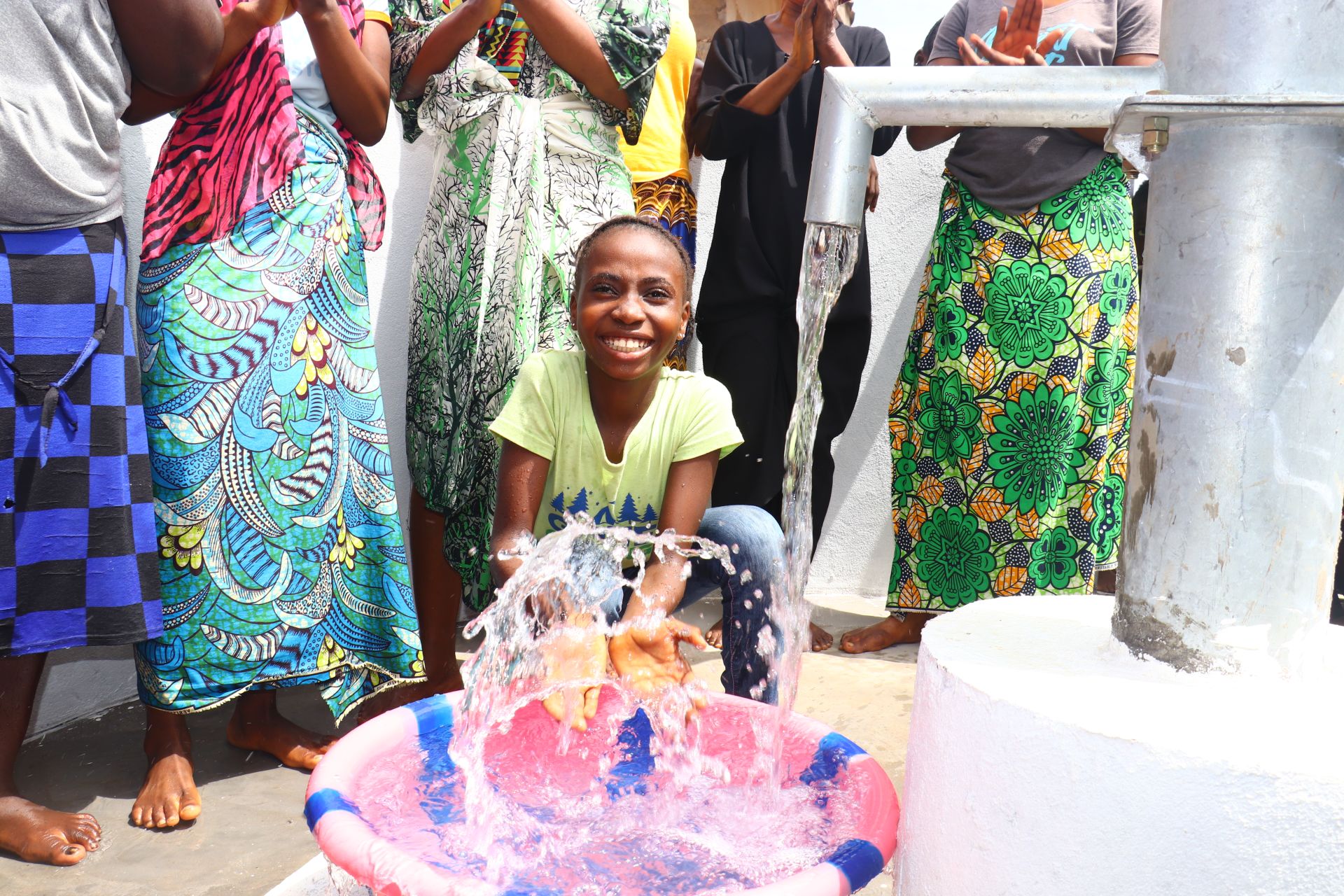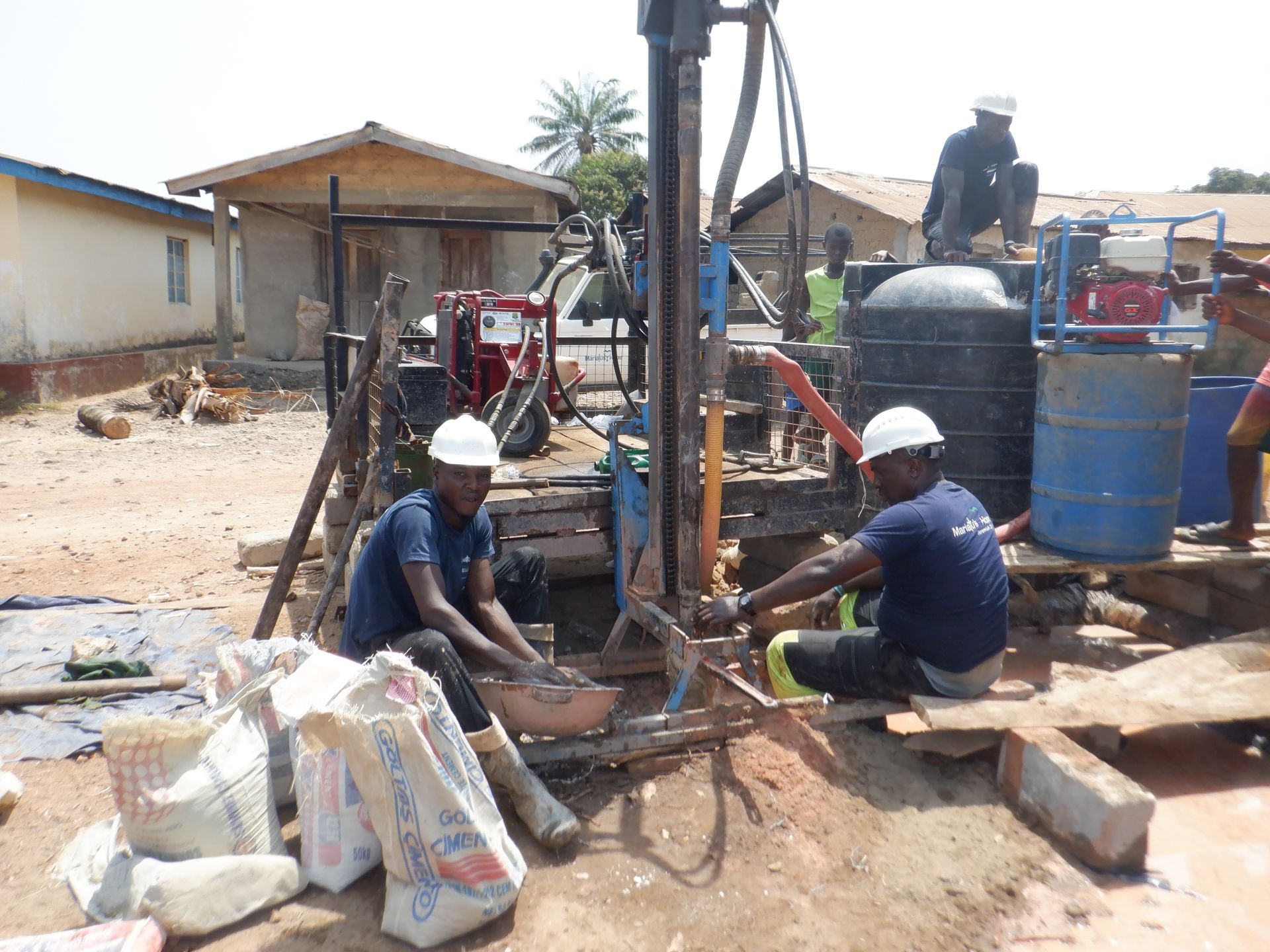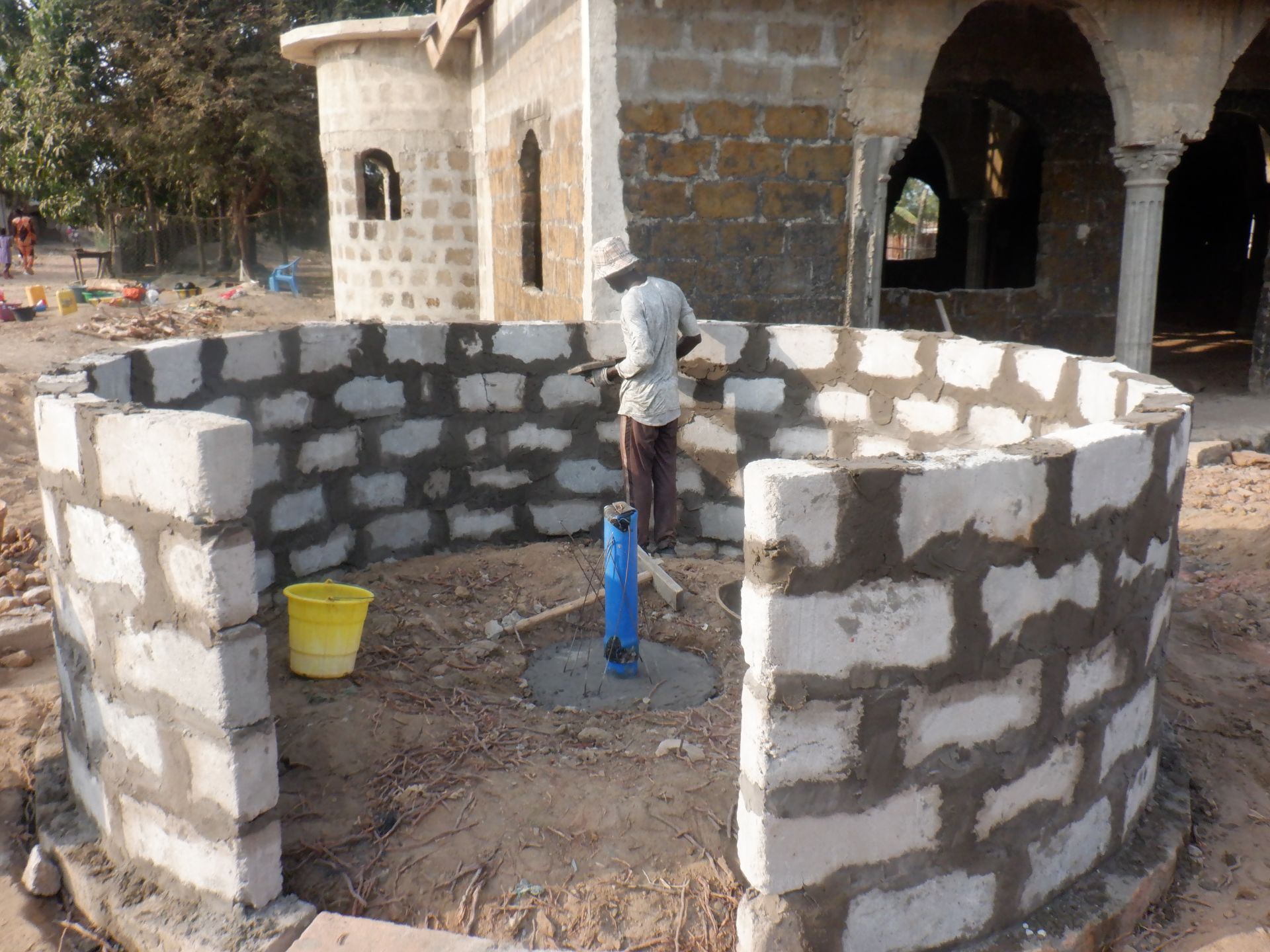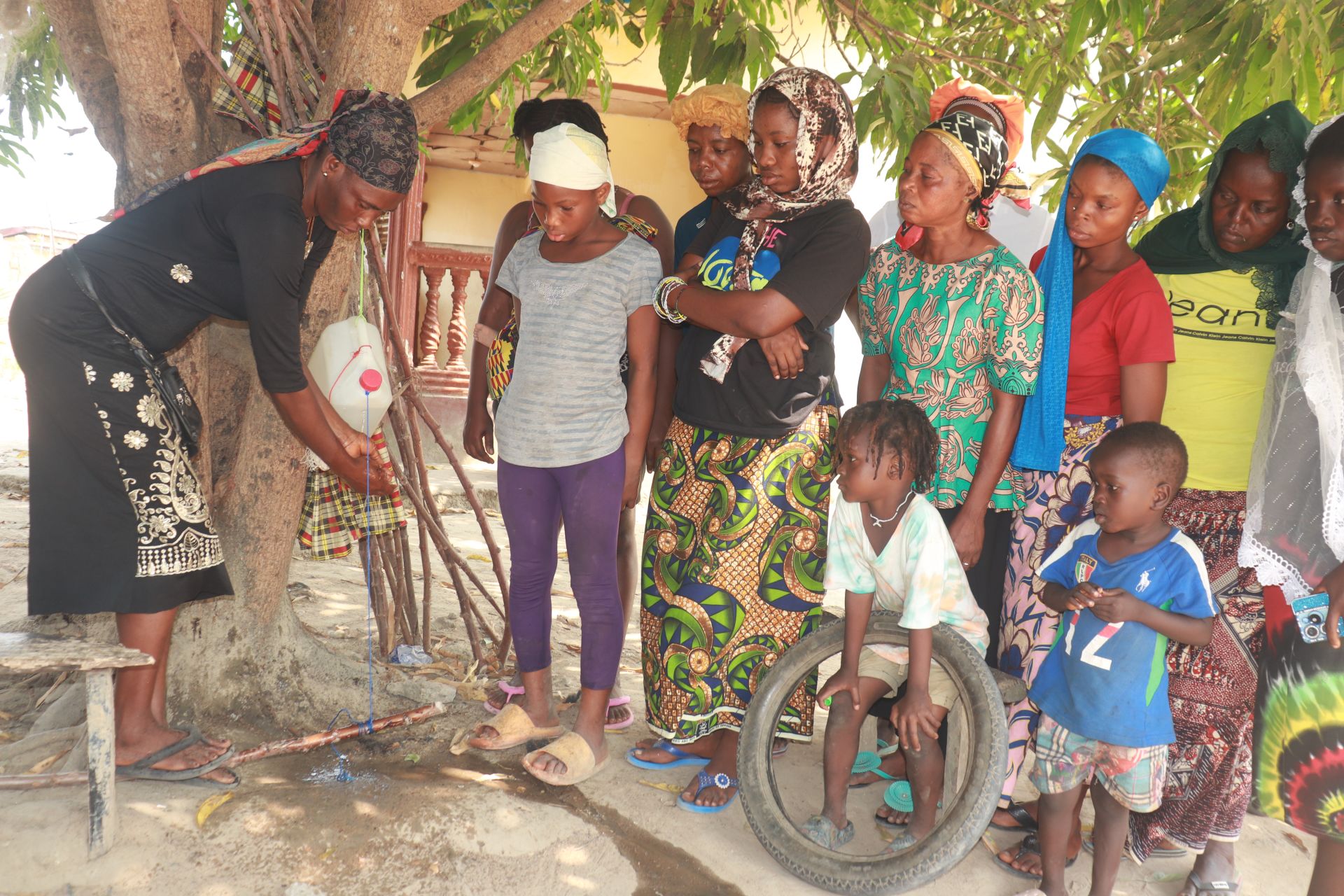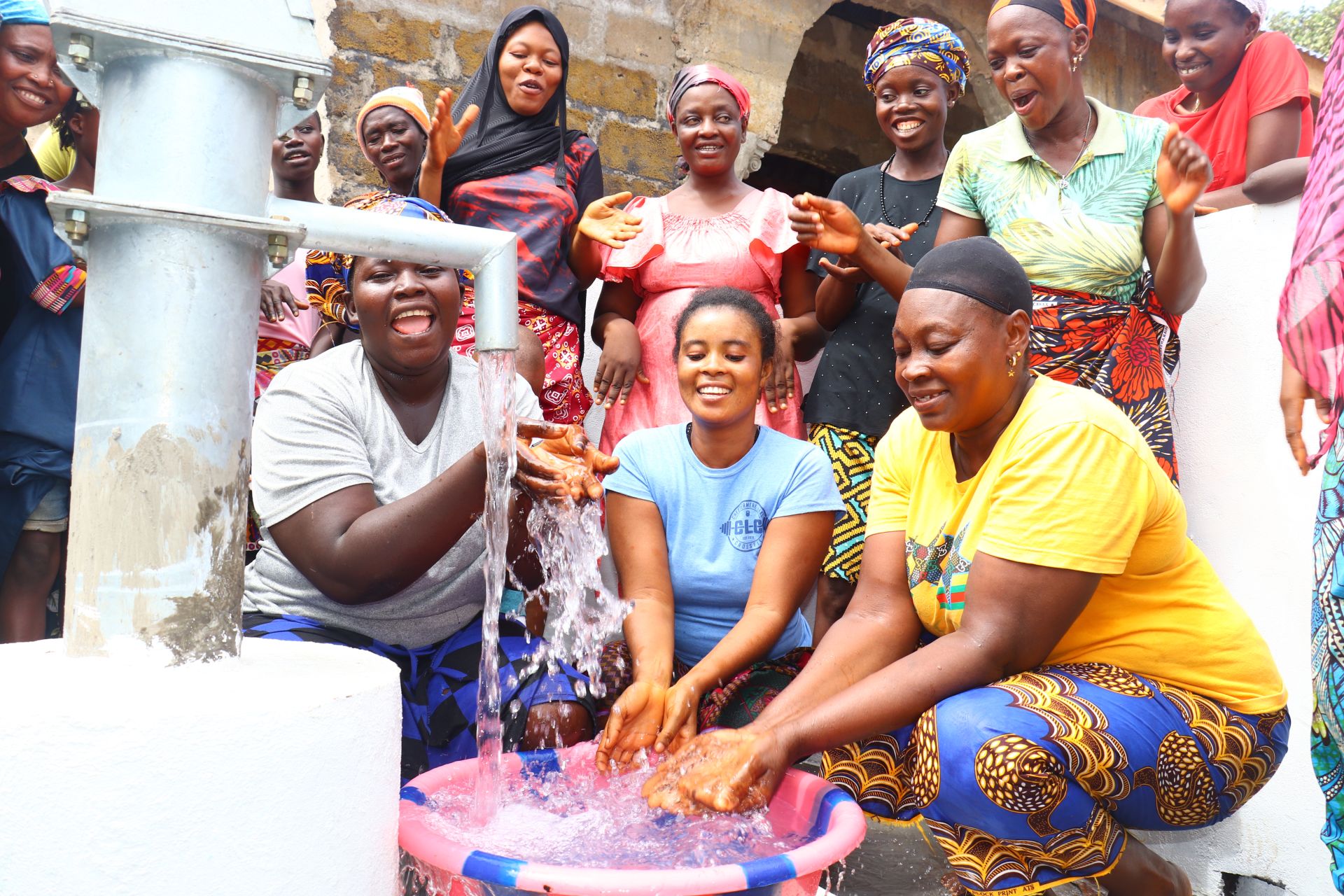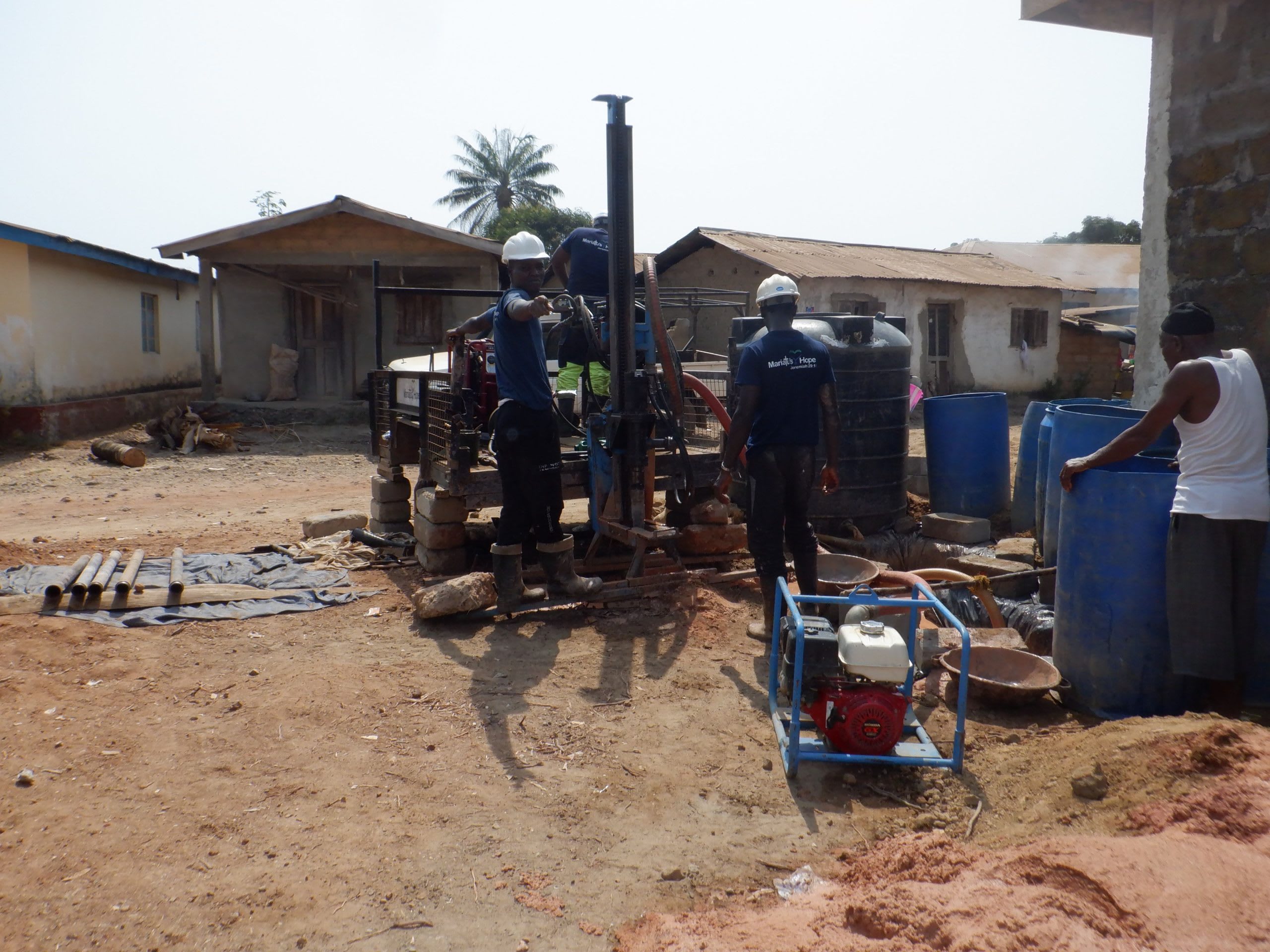Life can be difficult for 229 people struggling to access sufficient water in the Pepel Community. Community members have access to two wells, but they are both far away and difficult to access.
"Both [of] the sources [are] located far from the water users. So, they were walking long distances to access water. This might cause them [to be] tired after making many trips for a day. The other well has no hand pump so the water users find it difficult to fetch water from the well. They were using a rubber gallon and a rope to collect water. It hurts their hands, especially when holding the rope to pull water from the well. This requires time and energy. The community children find it hard to fetch water from this well due to its situation," shared Field Officer Alie Kamara.

Community member lugging water up from the well.
Children and adults alike feel the effects of their community's water crisis.
"The distance to the wells where I usually fetch water [is] located far from my house. Every day, I walk [a] long distance to fetch water. The well that has a pump sometimes gets low water, especially [in] the month of March. During that time, when I fetch water, it comes out dirty or changes color. The well must be locked for it to recharge, or it will not open for the rest of the day. The well that has no hand pump, [so it's] very difficult to fetch water from there. I use [a] rubber gallon [bucket] and a rope to fetch water, and this makes me take so long to return home," shared seventeen-year-old Amadu.
Amadu bears the responsibility of water collection for his household. It's a heavy weight to carry, but he doesn't have any other options.

Amadu collects water using a rope and jug.
"I feel bad when I [am] sent to fetch water. I solely take the responsibility to fetch water home. The distance to the wells [is] very far, and it is very difficult to fetch water from the well that has no hand pump. Fetching water from this well causes me to feel pain on my hands. This was the moment that pains me most," Amadu shared.
The physical toll of collecting water goes hand in hand with the toll on his time.
"I will only fetch water that will be used to wash utensils and bathe. I must go to school, and I will not be able to spend all day fetching water. I will fetch [a] small quantity of water, and when I'm off from school, complete filling the jerrycans or rubber buckets," he said.

Heading to fetch water.
"Fetching water impacts my time at school. Sometimes, I [had] already met my colleagues in class, and the teacher would have gone far with [their] teachings. It was hard for me to get [an] explanation from the teacher, and I will not be able to get notes. This will cause me to get poor grades during exams. I will be happy if this project provides water in my community," Amadu continued.

Amadu and a friend carrying water home.
Installing a well in the Pepel Community will give Amadu the chance to live his life. It won't be consumed by trying to meet his family's water needs, and instead, he can get to school on time and study when he needs to. Their new well will be drilled down deep enough to be unaffected by seasonality.
"In [the] future, I plan to become an electrician. I will be able to help my people," Amadu concluded.
Steps Toward a Solution
Our technical experts worked with the local community to identify the most effective solution to their water crisis. They decided to drill a borehole well, construct a platform for the well, and attach a hand pump.
Well
Abundant water often lies just beneath our feet. Aquifers—natural underground rivers—flow through layers of sediment and rock, offering a constant supply of safe water. A borehole well is drilled deep into the earth to access this naturally filtered and protected water. We penetrate meters, sometimes even hundreds of meters, of soil, silt, rock, and more to reach the water underground. Once found, we construct a platform for the well and attach a hand pump. The community gains a safe, enclosed water source capable of providing approximately five gallons of water per minute. Learn more here!
Community Education & Ownership
Hygiene and sanitation training are integral to our water projects. Training is tailored to each community's specific needs and includes key topics such as proper water handling, improved hygiene practices, disease transmission prevention, and care of the new water point. Safe water and improved hygiene habits foster a healthier future for everyone in the community. Encouraged and supported by the guidance of our team, a water user committee representative of the community's diverse members assumes responsibility for maintaining the water point, often gathering fees to ensure its upkeep.

 Borehole Well and Hand Pump
Borehole Well and Hand Pump
 Rehabilitation Project
Rehabilitation Project










